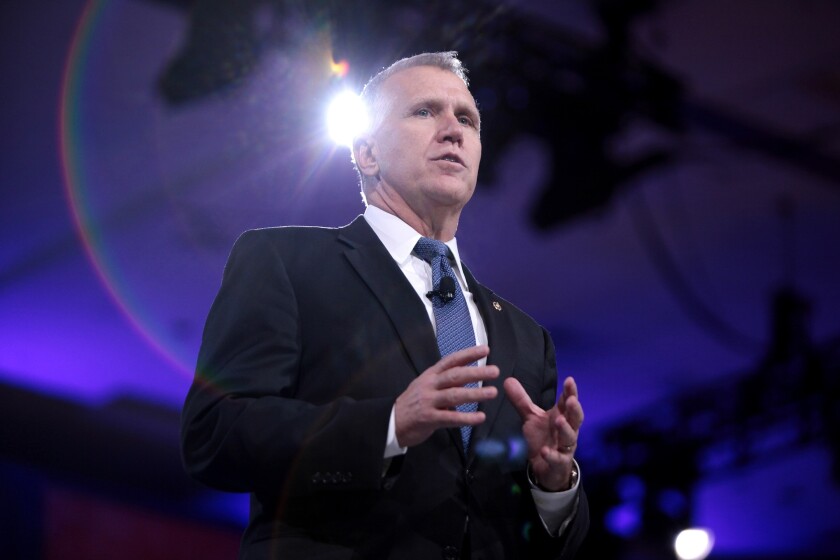Senator Thom Tillis has presented legislation to reform subject matter eligibility law in the US, it was announced today, August 3.
The Patent Eligibility Restoration Act, which was introduced yesterday evening, will limit exceptions to patent eligibility set out in Section 101 under Title 35 of the US Code if enacted.
The act is the first solid attempt by legislators to bring certainty to Section 101, which has become increasingly complicated since the Supreme Court (SCOTUS) issued its rulings in Mayo, Myriad and Alice in the 2010s.
The news comes just over a month after SCOTUS rejected an appeal request in American Axle v Neapco, dashing hopes of a judicial fix to the uncertain legal framework built around Section 101.
Tillis’s new bill will clarify that anyone who invents or discovers any useful process, machine, manufacture, or composition of matter, or any useful improvement can obtain a patent, subject only to the exclusions outlined in the bill.
Exceptions include mathematical formulas, mental processes performed solely in the human mind, processes occurring in nature wholly independent of and prior to any human activity, and unmodified genes as they exist in the human body.
Applicants wouldn’t generally be able to obtain patents for non-technological economic, financial, business, social, cultural or artistic processes either.
If accepted by the US legislature, the act will clarify that applicants can obtain patents on processes if they are embodied in machines.
But such patents wouldn’t be eligible if the machine was recited in a patent claim without integrating, beyond merely storing and executing, the steps of the process that the machine performed.
The proposed legislation also stated that patent eligibility should be determined on the basis of the claimed invention as a whole and without discontinuing or disregarding any claim elements.
It also set out that eligibility should be determined solely under Section 101.
Under the legislation, examiners wouldn’t be allowed to consider the manner in which claimed inventions were made, whether claim elements were known, conventional, routine, or naturally occurring, or the state of the art at the time of inventions when determining eligibility.
They also wouldn’t be allowed to consider novelty, non-obviousness and enablement when weighing in on subject matter eligibility.
The senator’s proposed legislation would also amend Section 100, clarifying that ‘process’ meant process, art or method, and could include a use, application, or method of manufacture of a known or naturally occurring process, machine, manufacture, composition of matter, or material.
It would define ‘useful’ to mean an invention or discovery that had a specific and practical utility from the perspective of a person of ordinary skill in the art.
Tillis and other senators have already made several attempts to address Section 101 problems.
In March 2021, Tillis and senators Mazie Hirono, Tom Cotton and Christopher Coons sent a letter to the USPTO requesting that the office release information on the state of patent eligibility in the US. The office released this report in June.
Tillis also proposed draft legislation to reform Section 101 in 2019 alongside Coons and representatives Doug Collins, Hank Johnson and Steve Stivers, shortly before chairing three days of hearings with the Senate Judiciary Subcommittee on Intellectual Property.
It’s unclear how likely this bill is to pass.












